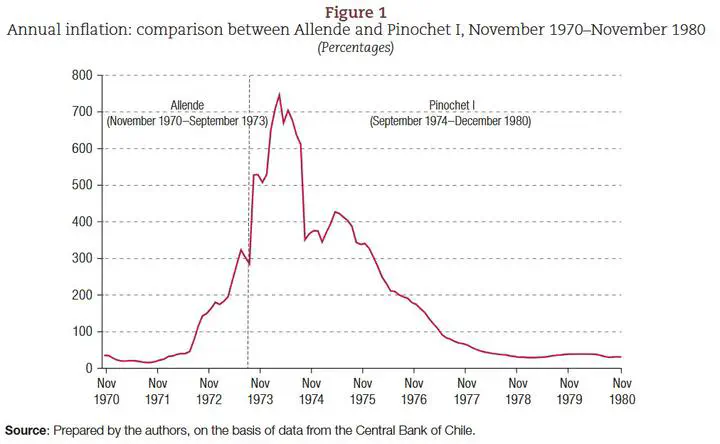The failure of shock therapy during the Chilean military dictatorship (1974–1979)

Abstract
This article analyses Chile’s monetary policy following the 1973 military coup and the failed attempt at nominal stabilization during the dictatorship. Two causes of persistent inflation are identified: (i) the narrowing of the fiscal deficit in 1974 was insufficient to curb high monetary issuance and inflation, thus perpetuating the inflation needed to finance the fiscal deficits; and (ii) the perception by economic agents that fiscal needs, financed through seigniorage, would not slow the growth of the monetary base and inflation. This perception kept inflation levels high following the coup. For the shock therapy to succeed, a greater reduction of the fiscal deficit and a perception that these lower deficits would be permanent would have been necessary. In the absence of a credible deficit reduction policy, inflation did not stabilize until the late 1970s.